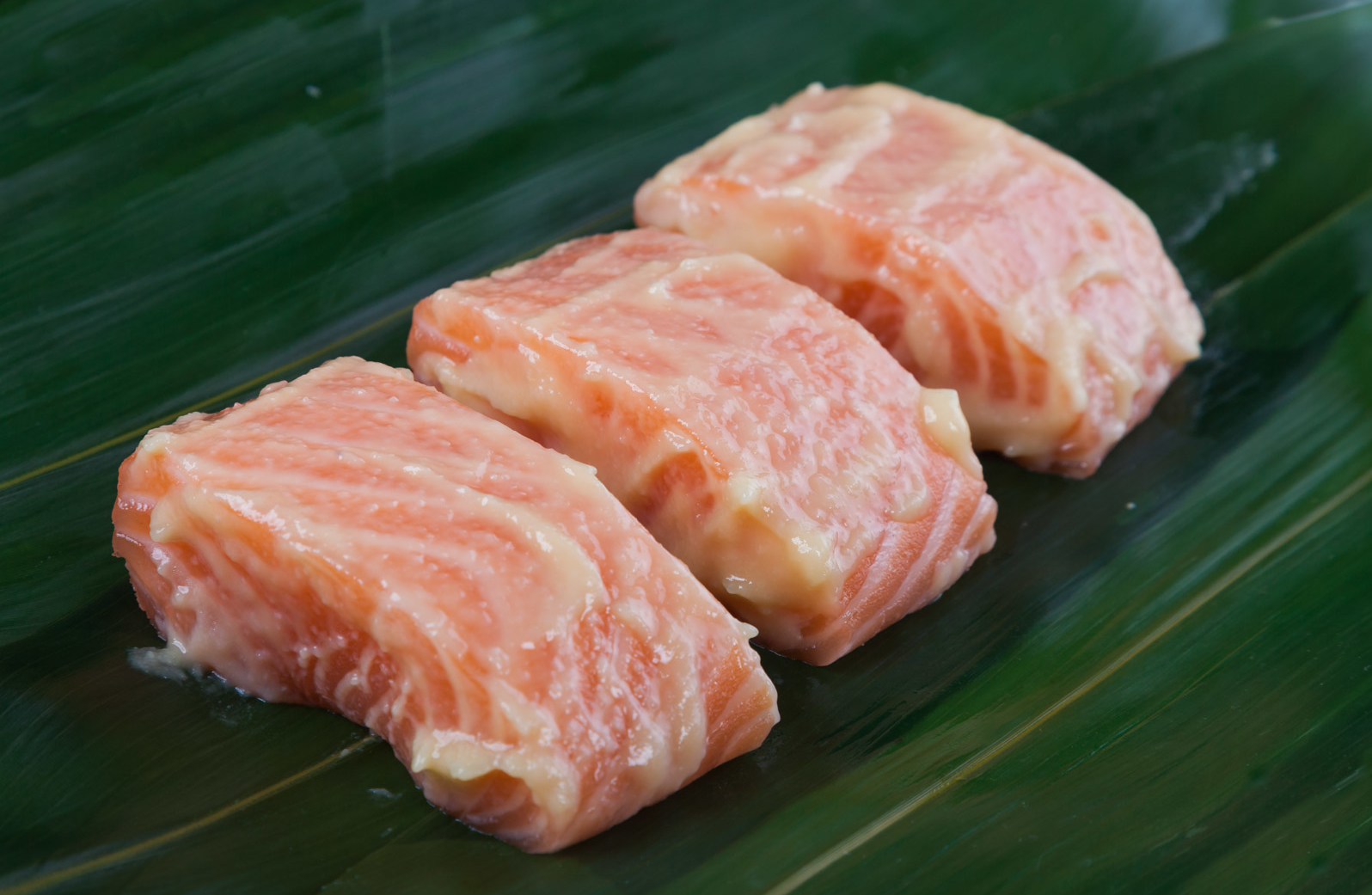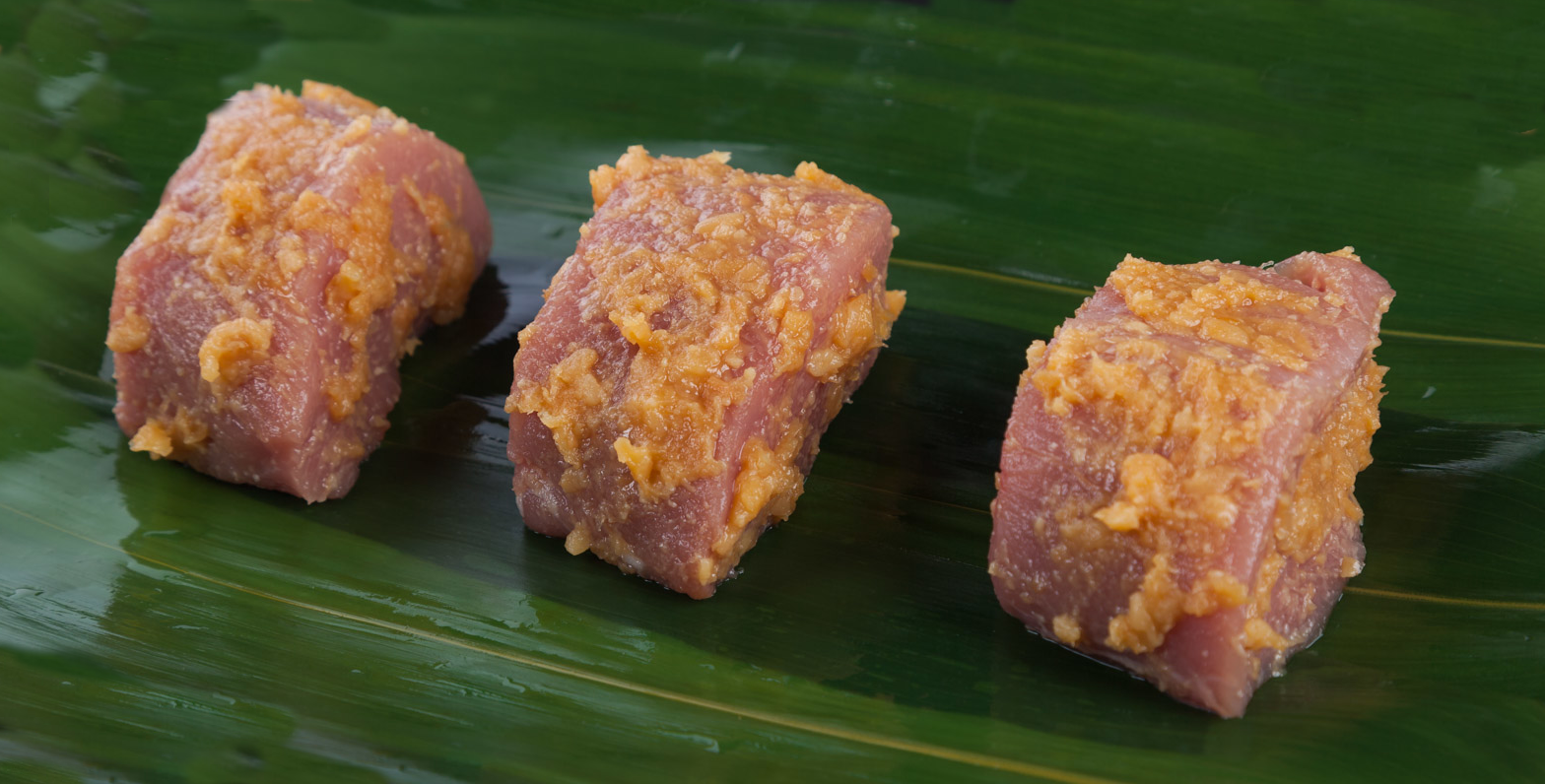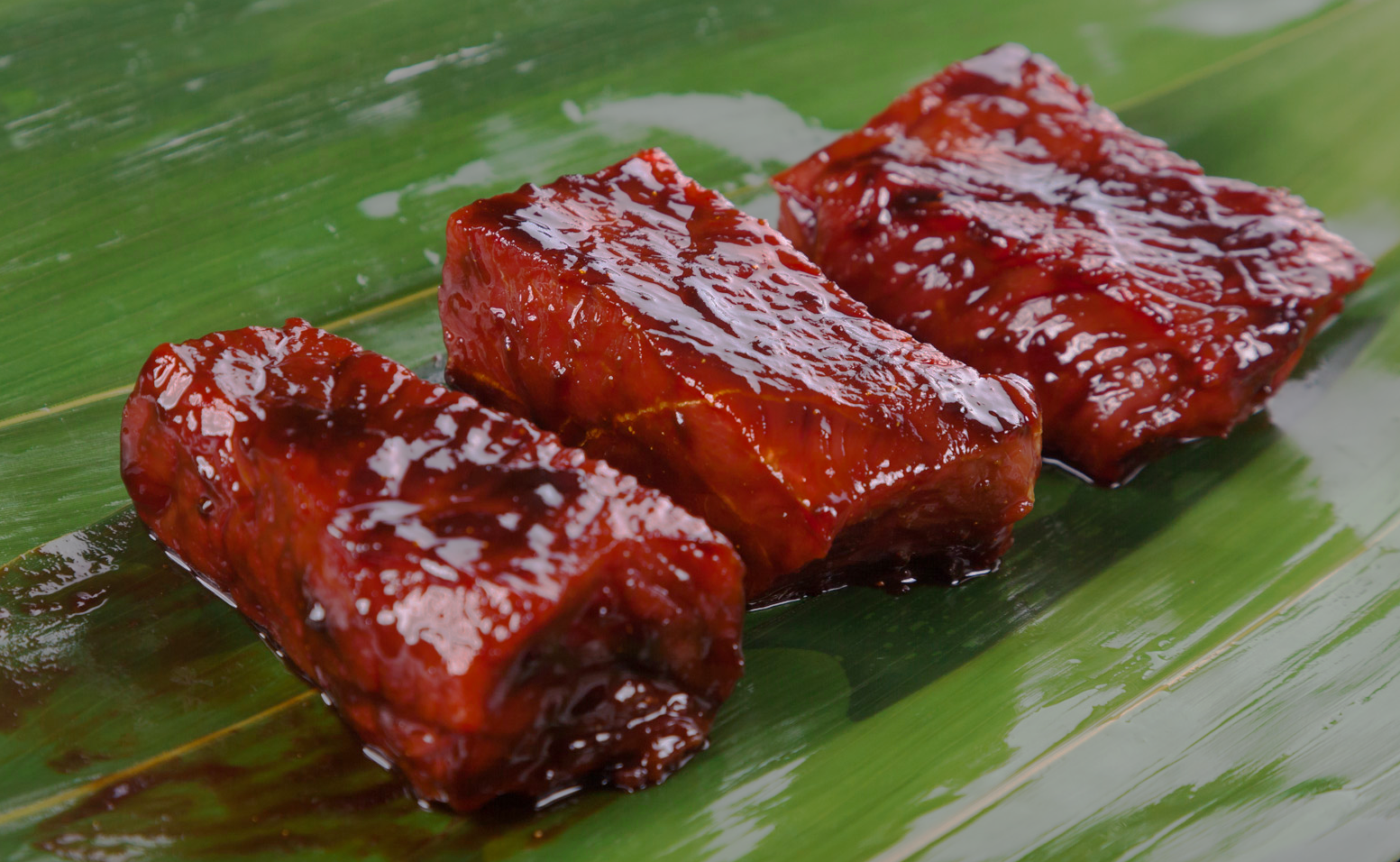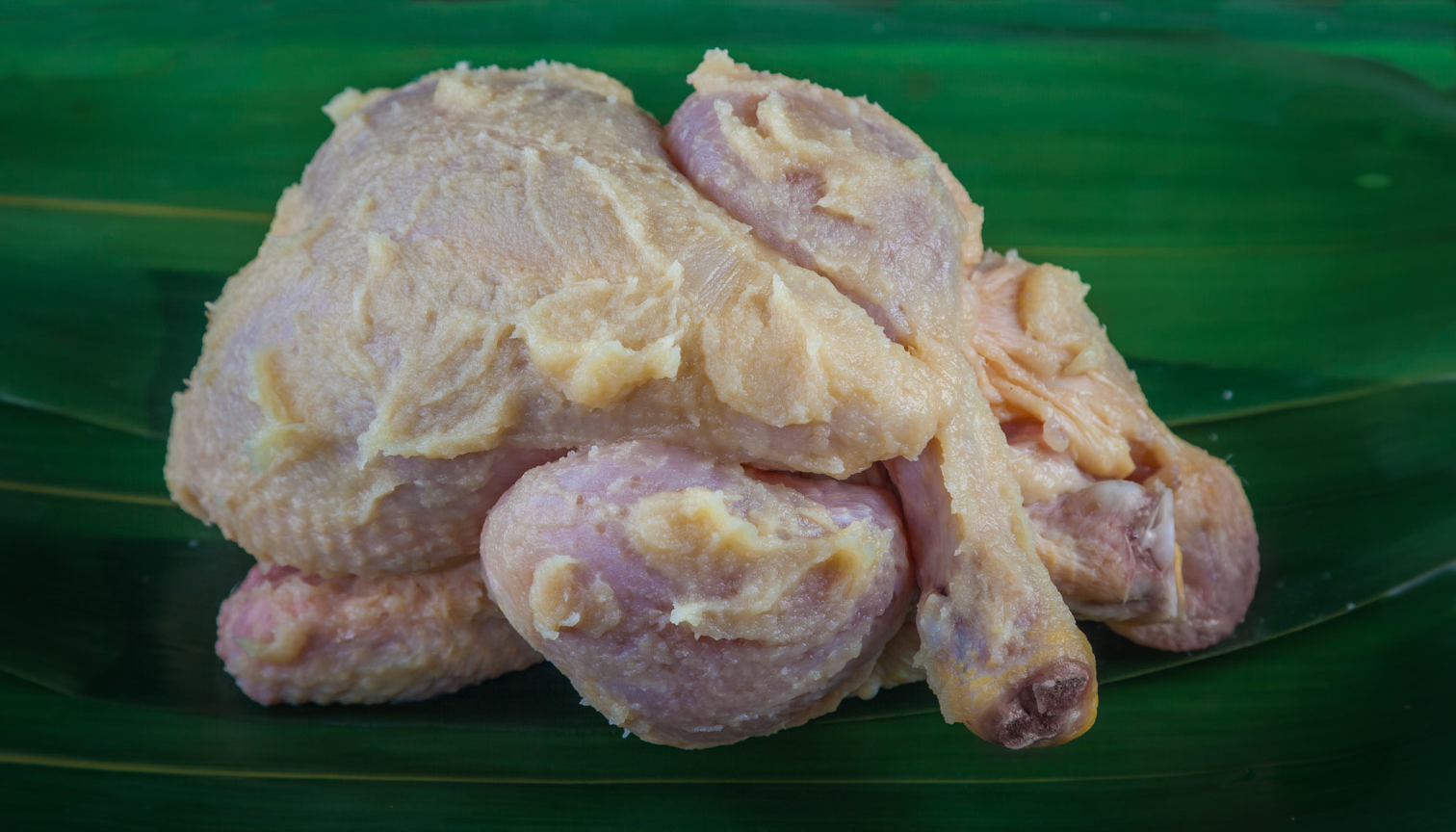
How is marinated with miso?
A miso marinade consists, in addition to the respective miso paste, of added alcohol (mostly sake and mirin) and sugar, usually in the form of mirin. The sugar content in mirin ensures a crispy and nicely browned/scorched surface. Miso and sake make the texture more tender, add umami, and make the flavor rounder and fuller. **Saikyozuke Miso** is a special product in this regard: mirin and sake have already been mixed into the miso, so the product only needs to be marinated without any additional ingredients being necessary.
The appropriate miso paste should be chosen based on the basic flavor of the meat or fish. Saikyo Miso, for example, is well suited for products with a certain inherent sweetness like chicken or various types of fish and seafood. Miso from the countryside (Inaka Miso) is better suited for pork because it still has a certain sweetness but also brings distinctly savory notes. Hatcho Miso, with its notes of olives and chocolate, pairs well with darker meats like game or beef. The possibilities for variation are endless, as different misos can also be mixed together to achieve more sweetness, more savoriness, or more body.
Salmon with Saikyo Miso Pork tenderloin with country-style miso


Beef hip with Hatcho Miso Indoor chicken with Saikyozuke Miso


Before cooking, the miso should be lightly wiped off the product so that only a thin layer remains. After that, depending on the type of miso, different cooking methods can be applied. In addition to the classic frying in the pan or oven, grilling is especially popular in Japan. Appropriately cut fish fillets are skewered and grilled on holders.
Attention: As in other areas, foods with a high sugar content burn very quickly. Especially with Saikyomiso, one should exercise caution.
Does giving the meat a miso marinade necessarily give it an Asian direction?
No, because first you add umami with miso and thereby enhance the natural flavor of the food being cooked. You still determine the final taste experience with the sauce.
